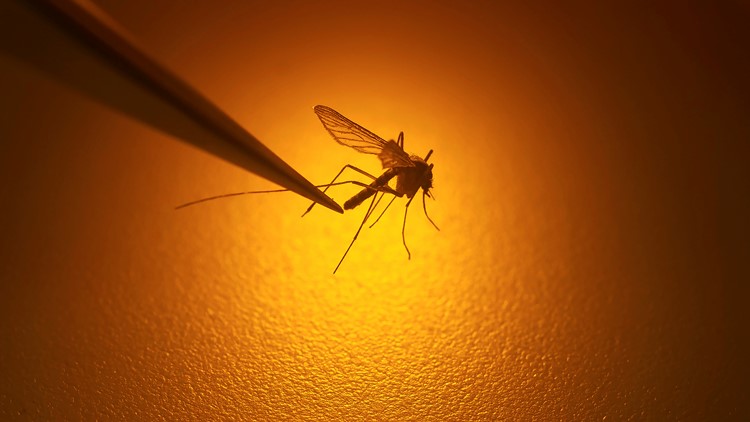HOUSTON — Harris County is reporting its first positive test for West Nile in a mosquito in 2020, Harris County Public Health said late Wednesday afternoon.
The WNV mosquito sample was identified in the northwest quadrant of Harris County.
Last week, Montgomery County reported its first case of West Nile in a mosquito trapped near the Panther Creek area in The Woodlands.
HCPH Mosquito and Vector Control Division began treatment to the area where the disease mosquitoes found on Tuesday to reduce the risk of human infection.
Mosquitoes are around throughout the year; however, they are more prevalent during the warmer months, and typically most active from June through October, Harris County Public Health says. Out of the 56 species of mosquitoes found in our area, only a handful transmit diseases such as West Nile Virus, Chikungunya, Dengue and Zika.
As you enjoy the outdoors during the summer, remember to protect yourself and your family from mosquito-borne disease.
Personal Protection
- Use an EPA-registered insect repellent containing the active ingredient DEET, Picaridin, IR3535, oil of lemon eucalyptus or para-menthane-diol, or 2-undecanone. Always apply as directed on the label.
- Do not use insect repellents on babies younger than 2 months old.
- Do not use products containing oil of lemon eucalyptus or para-menthane-diol on children younger than 3 years old.
- If possible, wear long-sleeved shirts and long pants.
At Home
- Remove/empty any containers that can hold water such as tires, flowerpots and toys.
- Change water in birdbaths and pet water bowls every 3 to 5 days.
- Keep rain gutters free of debris.
- Make sure screens are in good condition.
- Don’t “feed” the storm drains. Sweep up lawn clippings, leaves and tree limbs.
ALSO POPULAR ON KHOU.COM



